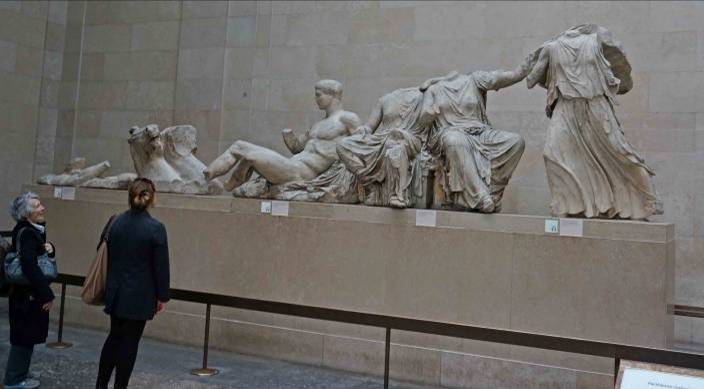There is a fascinating conversation in today’s New York Times on the question of when antiquities should be repatriated to their county of origin. Four knowledgeable commentators discuss the issues from their various perspectives.

Archaeologist Zoe Kontes uses the Parthenon Marbles as a prism to consider the legalities of such cases versus simply doing the right thing. She believes “repatriation would stem the loss of knowledge and help preserve our common human history.”
James Cuno, author of Who Owns Antiquity?, observes that “cultural property is not obliged to have only one identity,” so there is no compelling reason to repatriate objects to their countries of origin as if they were “refugees or prisoners of war.”
Samuel Sidibe, director of an African museum, thinks demands for the repatriation of human remains and funerary objects are a “special case” that “should be honored out of respect for human dignity.”
Kwame Anthony Appiah, a professor of philosophy and law, writes that “art from everywhere can matter to people from anywhere.” It therefore has no necessary homeland to which it must be returned.
The question of repatriation has no clear or simple answers. I can appreciate the arguments on both sides. My romantic side wants to see the Parthenon Marbles back at the Parthenon; but my more rational side thinks there should be museums where the world’s heritage rather than just that particular nation’s past should be able to be displayed and celebrated.
I urge you to read the four brief position statements in the New York Times as well as the comments posted on each of them. And consider joining the discussion — on the New York Times webpage, or here.
Whatever your views on the subject of repatriation, it’s a debate that will shape the future of museums.
